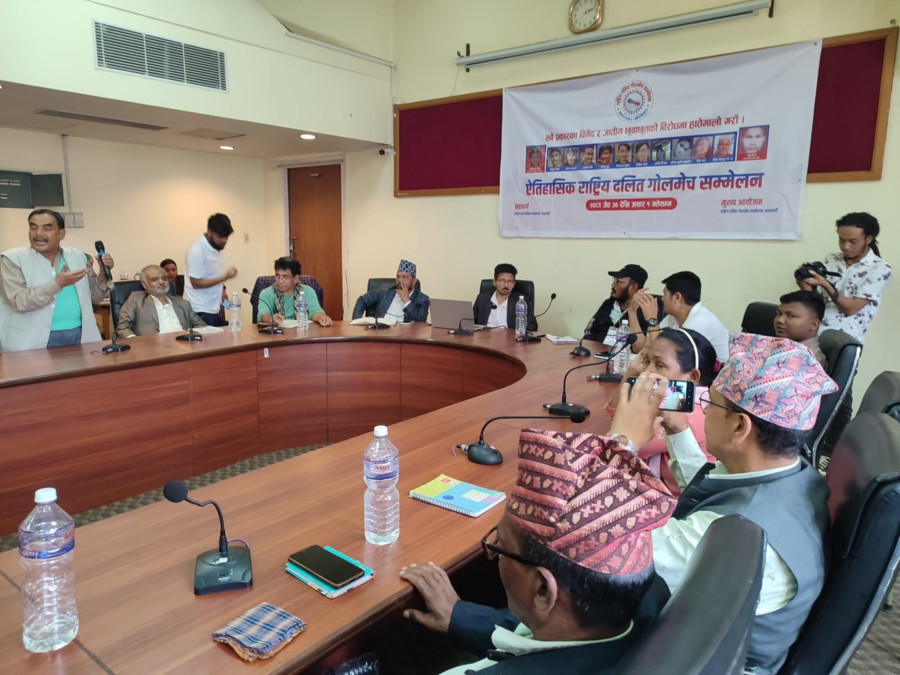Valley
National Dalit round table conference ends with 42-point declaration
The event focused on 13 key topics related to Dalits, including debates over the term ‘Dalit’ itself.
Post Report
The first-ever National Dalit Round Table Conference concluded on Sunday with a 42-point declaration demanding justice, equality, and structural reform to address caste-based discrimination.
The conference, which saw over 250 participants, was inaugurated by Haribhakta Mijar and Deepak Malik Dom, both of whom are victims of caste-based violence.
Mijar is the father of Ajit Mijar, who was allegedly killed for marrying an ‘upper-caste’ woman. His body still lies at the Teaching Hospital morgue in Kathmandu, awaiting justice.
Dom is a resident of Aurahi, Siraha, displaced after his home was destroyed for a Mahayagya (grand Hindu sacrificial ritual).
The event focused on 13 key topics related to Dalits, including debates over the term ‘Dalit’ itself. Other topics included constitutional amendments, land reform, electoral system, federalism, access to health and education, inter-Dalit discrimination, Dalit women’s issues, and views on religion.
Following an extensive three-day discussion, the conference adopted the 42-point National Dalit Declaration.
One of the key demands in the declaration is that all Dalits who were murdered during various historical periods under feudal state protection must be declared martyrs and granted legal recognition by the state.
Another major highlight of the conference was the discussion over whether or not to use the term ‘Dalit’.
The activists and experts at the conference rejected the narrative that Dalits are ‘Shudras’, the lowest caste in the Hindu hierarchy, and refuted claims that Dalits are ‘untouchable’ because of this label.
The declaration based on the discussion objects to the distortion and disrespect of the word ‘Dalit’. It notes that the term ‘Dalit’ signifies a rebellious and socially conscious class, akin to the proletariat used by communist parties, not an ‘untouchable’ class as defined and promoted by ruling castes and casteist forces.
“Merely changing the terminology will not bring sustainable dignity or livelihoods for the Dalit community,” said Nirmal Bishwakarma, former ambassador to South Africa and the chief convener of the conference. “So we affirm the commitment to retain the term Dalit and advance the struggle for Dalit unity and liberation under that name.”
Call for the establishment of Ministries of Social Justice or Dalit Development at both federal and provincial levels is another point in the declaration.
“Caste-based discrimination and untouchability are the problems of the nation, so there is a need for joint efforts of Dalits and non-Dalits to end it,” said Homraj Acharya, a social justice activist.
The disparities and divisions within the Dalit community were also brought forth.
“We should end the discrimination and hierarchical differences within the Dalit community itself for an integrated Dalit movement,” added Nirmala Pariyar, a Dalit rights activist.
Forming a 21-member committee, the organisers announced the launch of a new nationwide campaign, the ‘Dalit campaign for social justice’.
The committee will hold regular round table meetings with religious priests, political parties, government officials, and leaders to push the agenda of declaration and social justice forward.
“The Dalit movement should remain above political parties and not be confined within party lines,”added Tara Singh BK, a political activist.




 8.79°C Kathmandu
8.79°C Kathmandu














